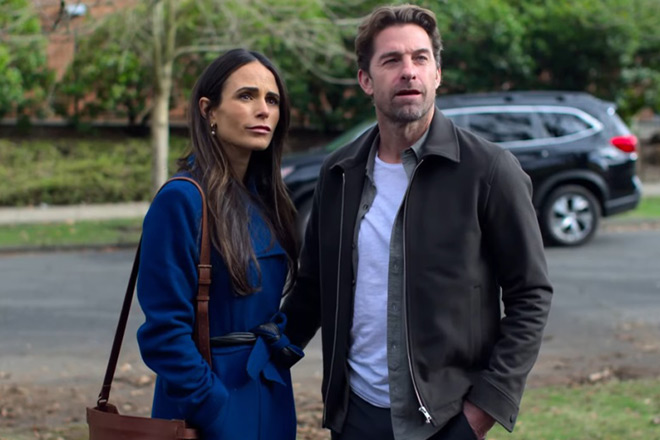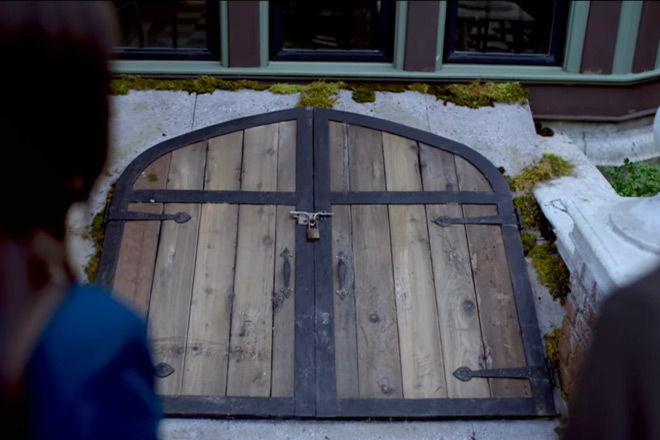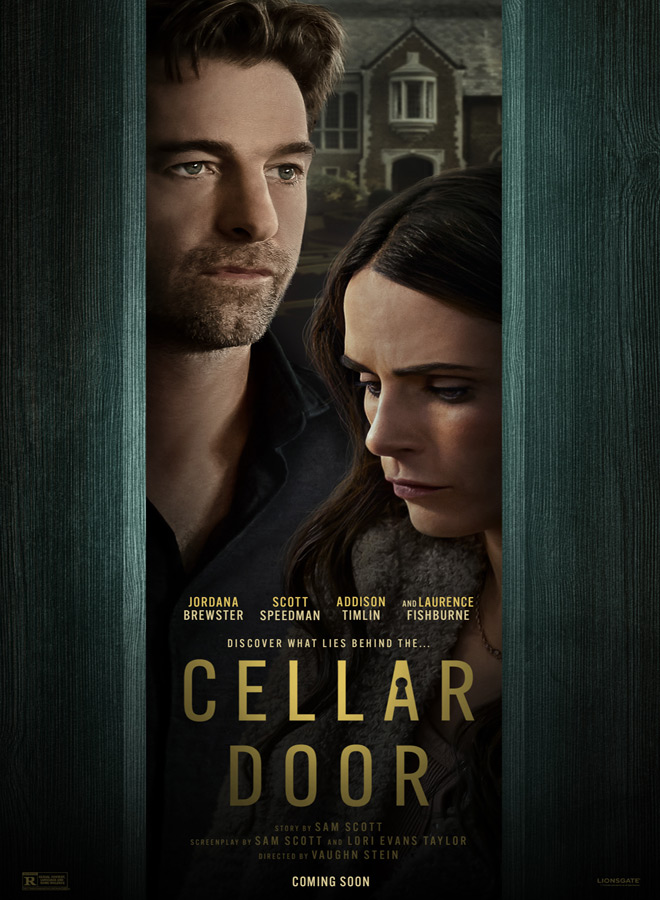In a time when securing a home has become a challenging pursuit, what are you willing to sacrifice or look past to have a place to call your own? Would you accept hidden flaws, unsettling histories, or even ominous warnings from others if it meant finally gaining a foothold? In director Vaughn Stein’s (Inheritance 2020, Every Breath You Take 2021) new Psychological Thriller, Cellar Door, a couple is faced with a compelling offer. But as the promise of a fresh start looms large, the house they are given might come with a darker price than they ever imagined.
In Select Theaters and On Digital November 1st through Lionsgate, the story follows a couple – John, played by Scott Speedman (Underworld 2003, Crimes of the Future 2022), and Sera, played by Jordana Brewster (The Fast and the Furious 2001, Fast X 2023) hoping to rebuild after the heartbreak of a miscarriage. Gifted their dream home by a wealthy benefactor Emmett, played by Laurence Fishburne (The Matrix 1999, John Wick: Chapter 4 2023), there is one eerie condition… they must never open the cellar door. Despite the picturesque backdrop of the Pacific Northwest, there is an immediate sense of suspicion; that a beautiful mansion in the backwoods cannot be the picture-perfect place to live that it seems to be.

John and Sera are desperate to start anew, so the audience must wonder whether Emmett’s offer is truly altruistic or if there is an ulterior motive. The couple quickly throws aside their doubts to move forward with the generous offer, which arguably is a bit frustrating to the audience. While the film’s atmosphere consistently builds tension and anxiety from beginning to end, it requires the audience to let go of logic or accept some frustration as characters make poor choices and ignore huge red flags. In the horror and thriller genre, this is not out of the ordinary for the audience, but here it risks breaking immersion, as their decisions feel overly driven by plot convenience rather than natural character development. This tension between character choices and narrative progression creates an uneasy dynamic that some viewers may find distracting, even if it ultimately serves to escalate the horror.
While the home serves as the physical backdrop for the story, it takes on a deeper significance, almost becoming a character in its own right. The house’s design, its isolation in the backwoods of the Pacific Northwest, and the mysterious cellar create an atmosphere of foreboding, mirroring the characters’ emotional turmoil and growing tension. It stands as both a symbol of hope and a potential trap, representing the couple’s desire for a fresh start, while also embodying the hidden dangers and secrets they are unable to resist uncovering. The house’s presence amplifies the psychological stakes throughout the film.

As the plot unfolds, strong chemistry between Speedman and Brewster helps maintain the audience’s engagement, effectively drawing them into the growing sense of unease as their relationship is tested. Their emotional journeys feel mostly authentic, even if the dialogue occasionally feels stilted or unnatural, undermining some of the emotional weight of their interactions. Despite this, the plot takes surprising and captivating twists, gradually unraveling in ways that elevate the psychological tension and sustain the suspense. While it may feel inconsistent at times, the unpredictable narrative keeps the audience invested, offering a compelling, if occasionally flawed, experience.
For viewers familiar with Vaughn Stein’s Inheritance, Cellar Door may evoke a sense of déjà vu – not in terms of plot, but in its thematic and atmospheric similarities. The films share a slow-burn tension, an undercurrent of secrecy, and an exploration of moral ambiguity, all set against environments that feel both luxurious and suffocating. Stein’s directorial style subtly compels the audience to question the reliability of everything around them. From the characters’ motivations to the environments they inhabit, nothing is as it seems, creating an atmosphere where trust is constantly in flux. This persistent uncertainty drives the psychological tension, forcing viewers to reassess their assumptions and stay on edge throughout his films.
Cellar Door offers a haunting exploration of grief, trust, and the price of a fresh start, but requires leaving logic and skepticism behind to accept the journey. While the film’s atmosphere and performances keep the audience engaged, some narrative choices stretch credibility and disrupt immersion. Vaughn Stein’s stuck to his directorial playbook, which makes for a somewhat enjoyable, but flawed Thriller. That is why Cryptic Rock gives Cellar Door 2.5 out of 5 stars.







No comment